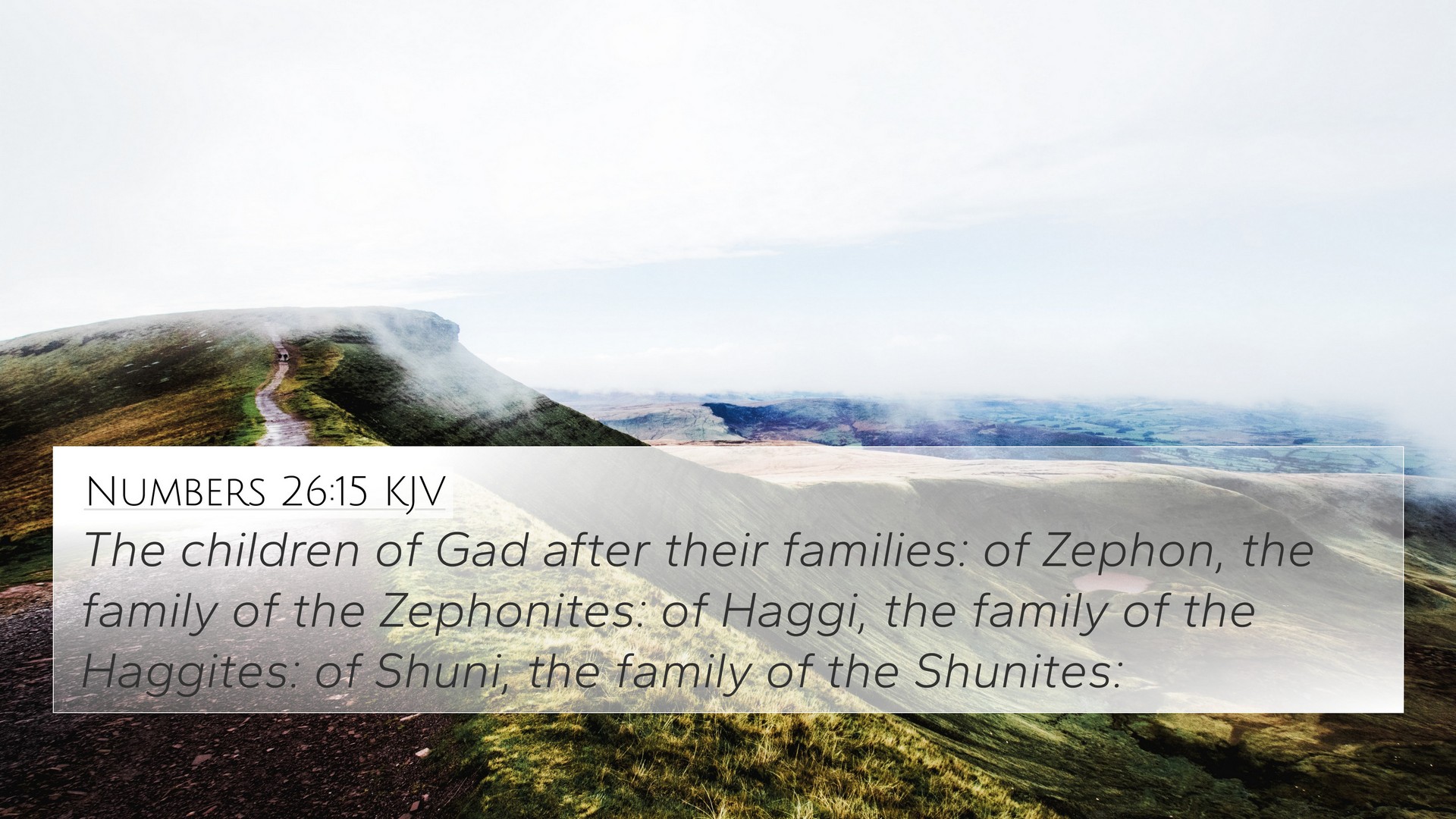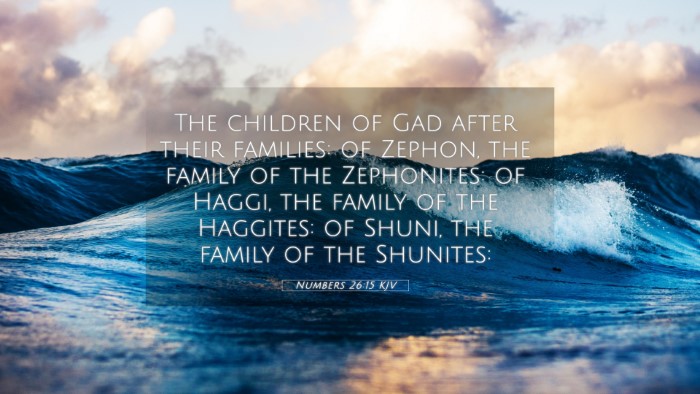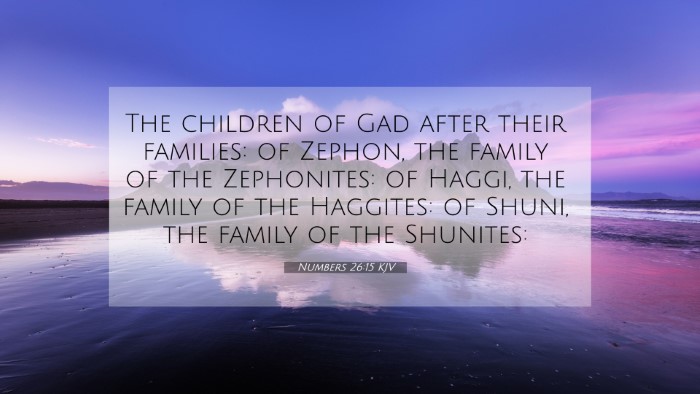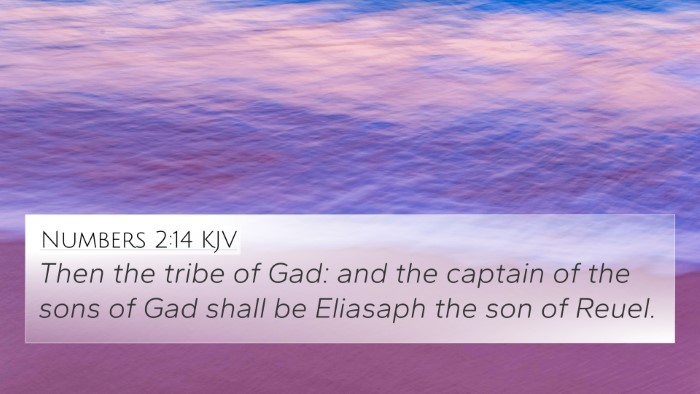Understanding Numbers 26:15
Numbers 26:15 states, “The children of Gad after their families: of Zephon, the family of the Zephonites: of Haggi, the family of the Haggites: of Shuni, the family of the Shunites:”. This verse is a part of the census conducted by Moses, where the tribes of Israel are being counted. The details may appear tedious, but they serve a significant purpose in highlighting the organization, identity, and heritage of the Israelite tribes.
Analysis and Commentary
This section synthesizes insights from public domain commentaries to enhance understanding of this verse.
Matthew Henry's Commentary
Matthew Henry emphasizes the importance of the genealogical records in establishing the identity and structure of God’s people. He suggests that this record shows God's faithfulness in preserving the families of Israel, indicating that even in what might seem monotonous listings, there is a divine order and purpose. Each family represents a segment of God's promise to Abraham contributing to His overall plan for a chosen nation.
Albert Barnes' Notes
Albert Barnes notes that the tribe of Gad, one of the twelve tribes of Israel, is surveyed to instill a sense of belonging and responsibility among its members. He points out that the mention of families within the tribe is a call to recognize their roles within the larger community of Israel. This reflects how God’s covenant is not just with individuals but with communities formed through familial ties.
Adam Clarke's Commentary
Adam Clarke elaborates on the significance of naming individual families, stating that this builds a connection to the past and a legacy for future generations. Clarke highlights that the tribe of Gad was known for its bravery and warfare capabilities, suggesting that records like these are essential for future generations to understand their heritage and responsibilities.
Key Themes and Cross-References
While Numbers 26:15 might seem isolated, it connects deeply to various biblical themes and passages. Below are the connections and themes relevant to the verse.
- Identity of God's People: Numbers 1:2-3, where the first census is taken, showing the importance of each tribe.
- God's Covenant: Genesis 17:6-8, where God promises Abraham that his descendants will be a mighty nation.
- Tribal Roles: Deuteronomy 33:20-21, which speaks about the blessings on the tribe of Gad.
- Family Heritage: Jeremiah 33:24, God’s promise of re-establishing the house of Israel.
- Community Responsibility: Exodus 18:21, where leaders are chosen to guide the people.
- Divine Order: 1 Corinthians 14:33, emphasizing that God is a God of order.
- Historical Significance: Ezekiel 48:34, detailing the specific inheritances of the tribes.
The Importance of Cross-Referencing in Biblical Study
Cross-referencing scriptures is vital for a comprehensive understanding of biblical texts. It allows for:
- Connecting themes across different books of the Bible.
- Realizing the continuity of God’s plan from the Old Testament to the New Testament.
- Understanding individual passages in the broader context of God’s revelation.
- Formulating deeper insights into God’s character and His dealings with humanity.
Tools for Effective Cross-Referencing
Utilizing tools like a Bible concordance or a cross-reference Bible study guide enhances this study. These tools allow individuals to:
- Quickly locate verses related to a specific theme or word.
- Explore relationships between different scriptural texts.
- Identify patterns of promises, prophecies, and fulfillments.
Concluding Insights
Numbers 26:15 may appear as a simple genealogy, yet through insights gleaned from reputable commentaries, along with thematic considerations and relevant cross-references, it comes to life. It illustrates God’s faithfulness, the significance of community, and the importance of heritage within the narrative of God’s people. Understanding this verse invites readers to appreciate the structure and richness of biblical genealogies and their impact on spiritual identity.




